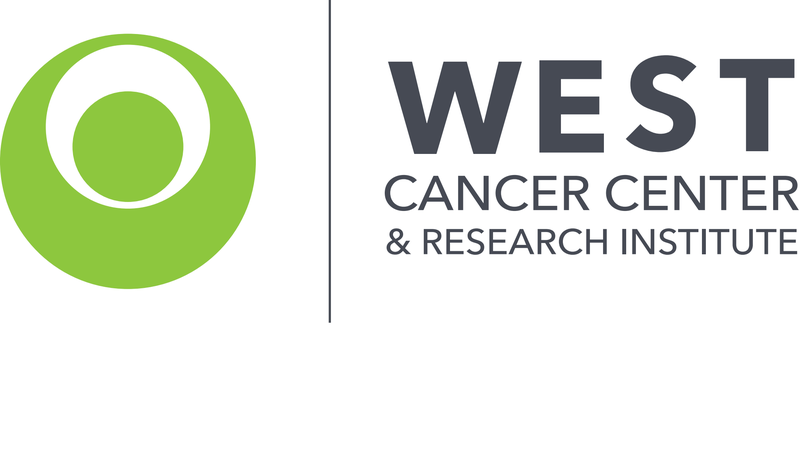
West Cancer Center Faculty Walk Through Ongoing Breast Cancer Research Efforts

Experts from West Cancer Center highlighted the exciting research being conducted at their institution.
At the 2019 OncLive® State of the Science Summit™ on Breast Cancer, experts from West Cancer Center highlighted the exciting research being conducted at their institution.
Lee Schwartzberg, MD, FACP
Lee Schwartzberg, MD, FACP: Executive Director and Medical Director, West Cancer Center; Chief and Professor of Medicine, Division of Hematology/Oncology, University of Tennessee Health Science Center; Chief Medical Officer, OneOncology
“We are doing a number of trials at West Cancer Center with immunotherapy. One interesting trial is examining an oral taxane called tesetaxel, which is given once every 3 weeks. A registration trial (NCT03858972) that has just completed accrual [is examining tesetaxel] in combination with capecitabine versus capecitabine alone in [patients with] hormone receptor—positive, HER2-negative breast cancer. We should see the results of that study in 2020.
In [metastatic] triple-negative [breast cancer], we’re doing a randomized phase II trial (NCT03952325) with tesetaxel [plus 3 different] immune checkpoint inhibitors. We’ll get data on the responses [observed] with this drug [in combination] with either nivolumab (Opdivo), pembrolizumab (Keytruda), or atezolizumab (Tecentriq). We should have some very interesting data from that trial as well.”
Michael Berry, MD
Michael Berry, MD: Director, The Margaret West Comprehensive Breast Cancer; Assistant Professor of Surgery, University of Tennessee Health Science Center; Assistant Program Director, Breast Surgical Oncology Fellowship, West Cancer Center.
“One effort that I believe is most groundbreaking is the ICE3 trial (NCT02200705), in which we are ablating luminal A breast cancers in patients who are aged 70 years and older. These are patients who otherwise don’t have to have nodes evaluated, are not going to receive chemotherapy, and can probably avoid radiation therapy; they never step foot into the operating room. We are ablating the tumors within their breasts and following them from there. Initial data [have shown promising] results and we’re accumulating more patients [to the trial]. That is something very exciting to me. Going forward, [the question] will be, “Can we take care of some of our aging population without ever having to take them to the operating room?”
Gregory Vidal, MD, PhD
Gregory Vidal, MD, PhD: Assistant Professor, Department of Hematology/Oncology, University of Tennessee Health Science Center; Medical Oncologist, West Cancer Center
“I’m working on a few projects right now. One project is looking at a particular biomarker assay that may be able to predict which tumors have a better response to PD-L1 inhibitor, which I believe is interesting. Other projects that I’m working on with some of our fellows have to do with looking back at all of our retrospective data or molecular analyses to see whether any biomarker patterns for response to CDK4/6 inhibitors [exist], which is also very intriguing. Also, in the lab, there is some epigenetic work that we’re doing, which may be exciting.
I also want to highlight that we also have a project in which we’re [examining the use of a] mobile application in breast cancer to improve patient adherence to antiestrogen therapy. With this app, the patient can be in contact with the physician while at home during those long intervals where we don’t typically see them. Hopefully, [with this app], we can intervene upon any issues that patients might experience with taking the drugs or [dealing with] adverse events [so that we can ultimately] improve adherence.”
Noam VanderWalde, MD, MS
Noam VanderWalde, MD, MS: Assistant Professor, University of Tennessee Health Science Center; Director of Clinical Research, Department of Radiation Oncology, West Cancer Center
“The way that we define “older” in [oncology] is 70 years and older. One of the issues that we’ve had [across tumor types, but less so in breast cancer], is that we underrepresent older patients in clinical trials. I believe that has been shown in several studies.
I have been working on a study that has also shown different factors that may have an impact on why studies are under-accruing older patients. However, the key here is that older adults with cancer make up the majority of those with cancer in this country. As such, it behooves us to study these patients, especially if we’re going to be treating them. In addition, [it’s important to remember that] we can’t extrapolate data on a younger adult cohort to older adult patients who may have very different cancers, performance/functional statuses, and tolerance levels than their younger peers.
It’s very important that we put more older adults on trials and that we design studies that make it easier to accrue older adults. We also need doctors and nurses who are trying to put patients on clinical trials to remember [to enlist] older patients as well. It has been shown that these patients are just as willing to go on studies as their younger counterparts are; we just have to ask them.
Even in breast cancer, [in which researchers have] done a relatively good job compared with some of the other cancer areas, we still need to try to design studies for older adults and put them on those studies so that we can better understand how to treat most of the patients we’re seeing in our clinics.




































